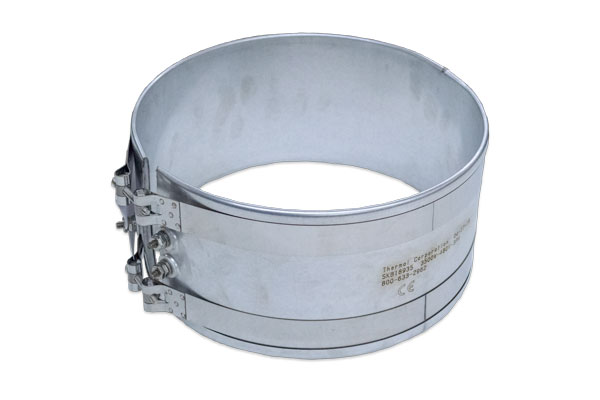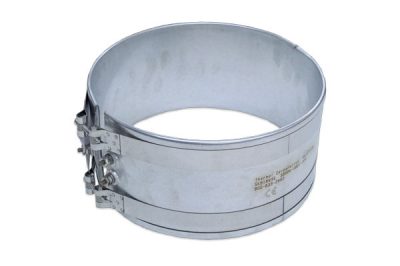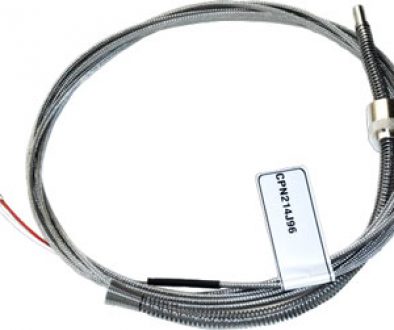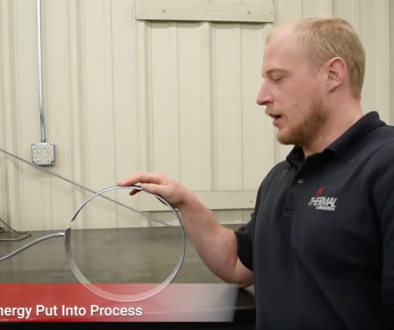Tips for Extending the Life of Band Heaters
Home > Blog Archive > Category: Industrial Heating Technology > Tips for Extending the Life of Band Heaters

#1 Avoiding Contamination
Both mica band heaters and ceramic band heaters are vulnerable to contamination.
- Moisture is one of the most immediately noticeable contaminants. If sufficient moisture is present at start-up, the heater fails as soon as power is applied. Sometimes, when the heater has been cool for a prolonged period and has been subject to a high humidity environment, there will be enough moisture absorbed to cause failure at start-up. When insulated lead wire has gotten wet near the heater, the moisture can be wicked into the heater and cause failure. Anytime heaters fail as soon as the power is supplied, moisture is a strong suspect as the culprit.
- Oil and other organics can cause heater failure if they get inside the metal sheath, but they behave differently than water. Most oils and organics do not conduct electricity very well as lower temperatures, but carbonize and become conductors at elevated temperatures. Thus, if such contaminants are present, the failure occurs only after the heater has gotten hot enough to cause carbonization. Like water, oil that gets on the lead wire insulation can be wicked into the heater.
#2 Avoiding Over-Temperature
- A loose fit of the band heater on its cylinder will reduce the heater’s lifetime because the heat generated is not transferred efficiently to the cylinder being heated, causing the heater to run at a higher temperature to transfer its energy. The higher the operating temperature, the shorter the lifetime. It is good practice to retighten the clamping strap or clamping tabs after the first time that the heater has been used, because the heater will be better conformed to the cylinder during its first heat-up. Anything that prevents a smooth fit of the heater on the cylinder, such as a cylinder surface irregularity, will shorten the life of the heater because the net effect of the irregularity is to make a “loose fit” in spots.
- Choose the lowest wattage heater than will maintain the desired operating temperature of the cylinder being heated and still provide a short enough start-up time. Choosing a heater with higher wattage than required will result in the controller turning the heater on and off to maintain the desired temperature and a higher operating temperature during on-time. These conditions will shorten the heater life.
#3 Excessive Cycling
- The way that Thermal Corporation evaluates the lifetime of their own band heaters and those from competitors is to cycle the units from 150°F to 900°F and count the cycles to failure. Cycling reduces lifetime because the surface of the element wire oxidizes rapidly at higher temperatures; if the higher temperature is maintained, the oxide coating actually protects the wire from further rapid oxidation, but if the wire temperature is reduced substantially, the oxide coating breaks off due to contraction and exposes fresh metal to more oxidation. With continuous cycling, the wire diameter is eventually reduced, and the resistance of the element is increased to the point that it becomes too hot. At that point, the element wire either melts and breaks open the circuit, or it causes the insulation over the wire to break down, causing a short to the sheath.
#4 Physical Abuse
- Never carry a band heater by the lead wires. If the heater has post terminals, use two wrenches; one to hold the bottom nut and one to do the tightening on the top nut.
Edited by Shelby Reece
Date Published: 07.05.2018
Last Updated: 09.06.2019



